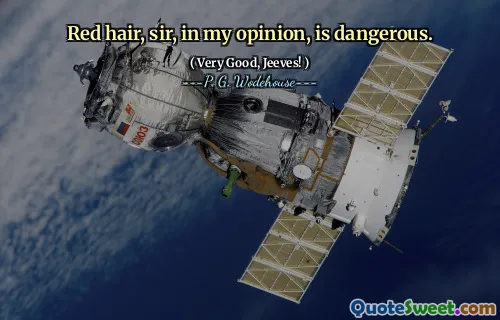You know how it is. Love's flame flickers and dies, reason returns to her throne, and you aren't nearly as ready to hop about and jump through hoops as in the first pristine glow of the divine passion.
In this quote, P.G. Wodehouse reflects on the transient nature of love. The initial exhilaration that comes with romance often diminishes over time, leading to a return to rational thinking and a more sober perspective on relationships. The excitement and willingness to go to great lengths for love can fade, revealing the complexities of enduring emotional connections.
The passage suggests that as love matures, the fervor and spontaneity may dwindle, replaced by a more cautious approach. This highlights the contrast between the initial stages of passion and the reality that follows, where individuals reassess their feelings and motivations in the context of an evolving relationship.






